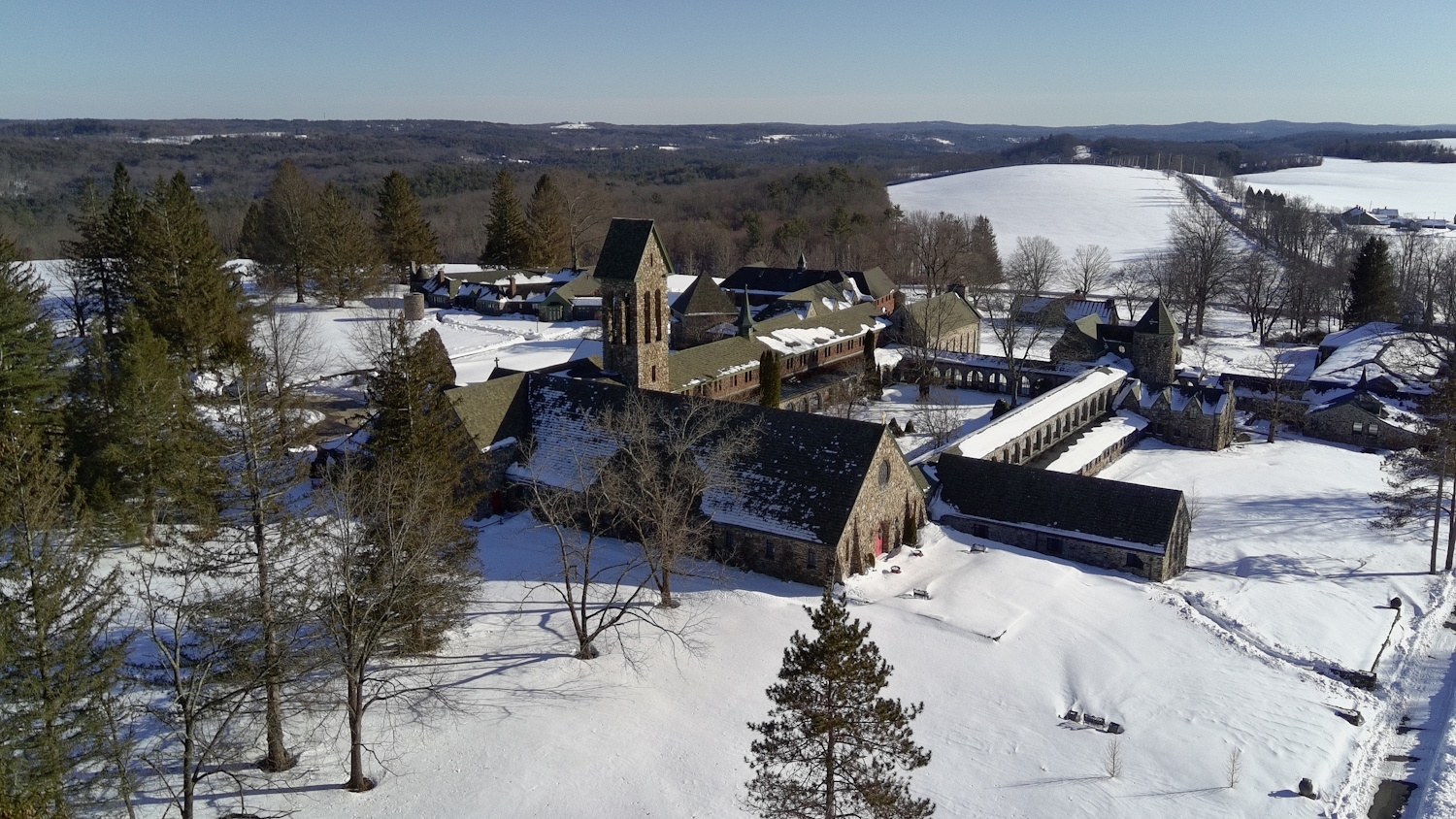![]()
This website represents some fifty years of reflections upon Scripture and Fathers of the Church. More specifically, attention is given to various books from the Hebrew Scriptures and New Testament as well as Origen, St. Gregory of Nyssa and St. Bernard of Clairvaux, three Christian authors of the Greek and Latin traditions respectively. Also included are works by non-Christian authors of the Greek and Latin classical tradition, the most important being Plato. Because of his immense influence on the development of Christianity it does us well to appreciate him anew. In fact, you could maintain that a proper understanding of Plato (and of course, Socrates) leads to a better grasp of Christianity. The reason? He represents in a marvelous way our innate desire to philosophize, literally to be friends with (philos)—to be on familiar terms with—wisdom (sophia). Once we’re learned how to put that into practice, the transition to theological reflection becomes more seamless. Actually the learning process is a life long project, a paedeia as the ancient Greeks would have it.
The phrase lectio divina, difficult to translate, is the Latin for “sacred reading.” The noun lectio could be rendered as a reading which is sacred. It derives from the verb lego, to choose, pick. In sum, lectio divina may is a kind of divinely inspired choosing with regard to a given sentence, phrase or word through which God himself speaks. Ordinarily this practice is confined to the slow perusal of sacred Scripture, both the Old and New Testaments. It is undertaken not with the intention of gaining information but of using the text as an aide first to contact the living God and secondly, to sustain that contact. Basic to this practice is a union with God in faith which, in turn, is sustained by further reading.
 One might expect that instead of the adjective divina, sacra (the feminine form of sacer) would be used. The word “sacred,” whether Latin or Greek, pertains to objects related to the holy such as a church or vessels of the altar used for Mass. Instead, tradition employs the adjective divina or divine (the feminine form of divinus). Exactly when and how this came about is lost in the mists of time, but that is secondary. Divina intimates that such reading is divine...not as limited as sacer...or more directly related to God himself instead of an object related to his holiness.
One might expect that instead of the adjective divina, sacra (the feminine form of sacer) would be used. The word “sacred,” whether Latin or Greek, pertains to objects related to the holy such as a church or vessels of the altar used for Mass. Instead, tradition employs the adjective divina or divine (the feminine form of divinus). Exactly when and how this came about is lost in the mists of time, but that is secondary. Divina intimates that such reading is divine...not as limited as sacer...or more directly related to God himself instead of an object related to his holiness.
There is no special program or technique to lectio divina. Even more importantly, one needs to be on guard to resist the modern temptation of reading a prescribed amount of material within a given time frame. This is more difficult to sustain over time than first meets the eye but certainly well worth the effort. The fruits garnered from lingering over a single word or phrase without having one eye on the clock is well worth the effort. Besides, it leads to further appreciation of the text at hand. Combine that with the Church's liturgical cycle, and you have literally a never-ending source of inspiration. Such is one of the most attractive features to lectio divina which is open-ended and subject to continuous growth.
Lectio traces its origins to early monasticism and currently is enjoying a wider acceptance among lay persons. In fact, many people show a spontaneous interest in lectio divina after having been initiated into some form contemplative prayer in line with Christian teaching and tradition. They realize that such prayer cannot continue without verification of their practice. The best locus for those raised in the Judeo-Christian heritage is found in both the Old and New Testaments. Prayer enables one to penetrate a reality beyond the letter of text and to see how the Holy Spirit is speaking to us through these inspired words here and now. Not long ago Pope Benedict XVI recognized this and remarked that lectio divina lies at the heart of the Church's renewal.
The approach to lectio divina as applied to the Bible in this Home Page is unique in that it relies heavily upon the biblical texts composed in the original Hebrew and Greek languages. Not only that, the same approach applies to some authors of both the Latin and Syriac traditions included here. Despite frequent references to these original texts, a purely etymological or scholarly approach is not the goal. As already noted, the texts are presented as aids to foster Christian contemplative prayer which remains primary to any subsequent reflections. Apart from this goal the material presented here is of no value.

When it comes to those texts dealing with scripture (and that includes the bulk of the documents), often the title will begin with the word “expansions.” This is a deliberate choice which pretty much sums up the purpose of this homepage. A word or phrase within a scriptural text is expanded upon in deliberate fashion, again to assist the reader in doing lectio divina compared with studying the text in the conventional sense.
While readers may find the numerous insertions of transliterations wearisome as well as somewhat dense and repetitious, this represents a constant appeal to the original texts which is of utmost importance. If the reader is patient, he or she can allow the text to speak on its own terms minus any personal take on them. Again, it is important to keep in mind one critical point with regard to documents pertaining to scripture and philosophy. Avoid rushing through a given text but linger as long as needed to absorb it. The notations are meant simply to stop the reader in his or her tracks in order to savor the divine presence both in scripture and in oneself.
Please note a new category located under the Patristic banner entitled St. Vasily of
Kineshemsky. It contains material and a few photos of St. Vasily, a recently canonized saint of the Russian Orthodox Church. He is little known even in Russia except for his more immediate area. What’s presented there consists of preliminary material. St. Vasily’s chief work, a Commentary on St. Mark’s Gospel, is being translated by some devoted people who wish to make his work known to those outside Russia. God willing it will develop as time goes by.
A special note of thanks goes out to Joe Cece of Little Falls, New Jersey who from the beginning had been instrumental not only in setting up this home page but in offering continued guidance. The site would be literally impossible without him.
This website is dedicated to many fine men and women in the country of Iceland who have adopted the practice of lectio divina. Since the middle of the nineteen-nineties its practice there has expanded rapidly after having been introduced some fifty years ago. Now it is flourishing and has become an integral part of the local culture. This is an outstanding development insofar as Iceland, being an island, traditionally has been wary of influences coming from outside. Almost always they are considered an import...helpful in many ways but not of the local culture. Also permit me to add new friends in Russia who are engaged in making known St. Vasily of Kineshemsky better known.
While the material in this homepage is not subject to copyright, contacting the author for use of any material would be appreciated. Please use the email under “contact the author.”
A recent edition is a photo album of St Joseph’s Abbey. This will be developed over the near future. The Flickr link is as follows: https://www.flickr.com/photos/203513256@N02/
Richard McCambly, ocso
September 2025






















